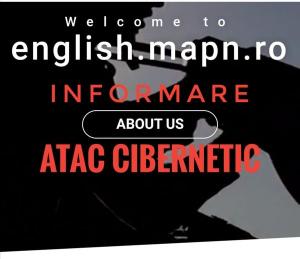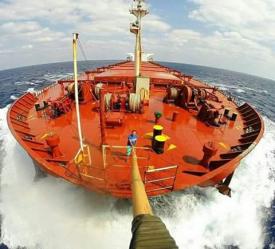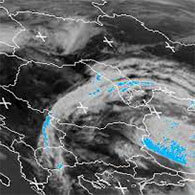Key Elements of the S&D Group Position on the European External Action Service (EEAS)
Key Elements of the S&D Group Position on the European External Action Service (EEAS) 2454
Marime text
2454
Marime text

 The
establishment of the European External Action Service (EEAS) is for the
S&D Group an important step forward in implementing the Common
Foreign and Security Policy (CFSP).Furthermore, the EEAS should enhance
the coherence between different dimensions and instruments of EU
external action.
The
establishment of the European External Action Service (EEAS) is for the
S&D Group an important step forward in implementing the Common
Foreign and Security Policy (CFSP).Furthermore, the EEAS should enhance
the coherence between different dimensions and instruments of EU
external action.
In this respect, development policy is of particular concern to the S&D Group. We need to move beyond all inter-institutional divisions and differences between the Commission and the Council. We need one active and clearly visible EEAS which is fully responsible to the European Parliament - politically as well as regards the budget and the discharge. The S&D Group is pragmatic regarding the detailed allocation of tasks for the new service but we stand firm on the principle of implementing the Common Foreign and Security Policy whilst ensuring policy coherence for development. Member States are requested to contribute actively to the EEAS, but they should not try to put into operation an EU foreign policy influenced by their national perspectives. The European perspective is decisive.
The
following elements were agreed upon on 14 April 2010 in the S&D
working group on the EEAS and subsequently confirmed by the full Group.
The position paper is a work in progress and may be adapted to future
developments.
- The Nature of the Service
We can accept the EEAS as a sui generis service, provided it is linked to the Commission and fully accountable to the European Parliament. This definition will have to be taken into account when working on the Financial Regulation, i.e. as regards the administrative budget the EEAS will be treated like a separate institution.
- Budgetary Issues
Our Group wants to ensure full transparency of all
expenditures for EU external policies. Our preference is for one
transparent consolidated administrative budget for the EEAS. The
discharge procedure within the EP must cover the substance of the
policies (Commission budget) and the administrative expenditures (EEAS
as a separate section of the budget). We will grant discharge in a
separate report on the EEAS administrative budget, while the operational
expenditures will be a part of the Commission discharge procedure. The
Inter-Institutional Agreement (IIA) on CFSP budget should be revised in
order to strengthen parliamentary scrutiny of the CFSP. The S&D
Group will not insist on budget neutrality of the EEAS. However, if
national diplomats are to be included in the EEAS, then a proportional
increase of the funding for
the Heading 4 (EU as a global player) has
to be foreseen.
- Staff Matters
The Council
Decision on the EEAS cannot legally prejudge the revision of the Staff
Regulations, since the latter will have to be decided upon in a
co-decision procedure, once the EP has officially received the proposal
on the revision of the Staff Regulations. It must be a coherent service,
in which all staff must be loyal to the EEAS. The S&D Group insists
that all staff of the EEAS follow one line, as defined by the
Commission Vice President/High Representative (VP/HR). The service must
be able to function without national and inter-institutional
interference.
Recruitment of staff will be done on the basis of
merit, and with the long term aim of establishing fair regional and
national balance among staff members.
- Integration of other sectoral policies, in particular the Development Policy
The
responsibilities of each Commissioner remain fully intact and are not
affected by the creation of the EEAS. Political decisions will continue
to be taken by the Commission, Counciland Parliament as defined by the
Lisbon Treaty. It is essential to ensure coherence between the
programming of external assistance and its implementation, which should
be carried out under the responsibility of the relevant Commissioner.
Only in this way will we make sure that European political goals are in
line with the implementation on the ground.
The geographical desks of
the EEAS will contribute to mainstreaming of all relevant policies with
regard to a country or a region. We are confident of better integration
of development policy via the geographical desks.
These must be
staffed in such a way that they reflect the political priorities for a
given country. The Commission services and the EEAS must ensure that
external and other policies do not act to the detriment of poverty
eradication and development policy.
A precise definition of the so
called 'joint key mechanism' will be needed in cases of shared
competences. The responsible Commissioner will formulate policies in
his/her area of competence together with the VP/HR and present them
jointly to the College of Commissioners for final decision.
- Deputies of VP/HR
We do not support the concept of political deputies with the aim of creating a party-political balance. The VP/HR can decide on a case by case basis whether he/she wants to be represented by a Commissioner or Special Representatives according to the Treaty. The deputy speaking on behalf of VP/HR does so on the basis of his/her entire mandate.
- Parliamentary control
The EEAS will be scrutinised in its entirety, there will be no inter-institutional break-up on the control side. The practicalities of this will be defined in the inter-institutional agreement. The gentlemen's agreement between Council and European Parliament regarding their administrative budget does not apply to the EEAS.
- Negotiation strategy
The proposals for the Council Decision,
Revision of the Staff Regulations and the amendment to the Financial
Regulations, EU budget and the IIA on CFSP budget are treated as a
package which will be negotiated jointly. While each political group in
the EP is shaping its position on the EEAS, we must not lose sight of
the fact that only by reaching a broad majority within the EP will we
safeguard our Institution's
prerogatives. The official negotiating
team will be the EP Steering Committee.
Urmareste-ne pe Grupul de Whatsapp
 Fondul Documentar Dobrogea de ieri și de azi
Fondul Documentar Dobrogea de ieri și de azi








_thumb2.jpg)























